Iranian official: US, other parties to JCPOA need to show good faith, make necessary decisions
Iran’s acting ambassador to the International Atomic Energy Agency (IAEA) says a successful conclusion of the Vienna talks is possible if the United States and the other signatories to the 2015 Iran deal take the necessary political decisions.
Addressing the IAEA Board of Governors on Tuesday, Mohammad Reza Ghaebi said “good faith” and the immediate removal of anti-Iran sanctions were required of the other parties to revive the deal, which is officially called the Joint Comprehensive Plan of Action (JCPOA).
“A successful conclusion of the negotiations is not out of reach if the US and other members of the JCPOA show good faith in the negotiations and make the necessary and the right political decisions to immediately lift the cruel and inhumane sanctions,” Ghaebi said.
The Vienna talks, which were launched eleven months ago, are reportedly in their “final stages,” as the participating countries intensify their efforts to narrow the remaining gaps. Iran’s lead negotiator Ali Bagheri-Kani was due back in Vienna on Wednesday after briefly returning to Tehran for consultations.
Back in 2018, Washington left the JCPOA and launched what it called a campaign of “maximum pressure” against Iran despite verbal opposition from all other signatories. Effectively depriving Iran of the JCPOA’s benefits, the move prompted the Islamic Republic to reduce its nuclear commitments, in a reciprocal move envisaged under Articles 26 and 36 of the accord itself.
Ghaebi said the US withdrawal and the three European parties’ inaction had left Iran no choice but to resort to the only available solution, namely invoking the Articles 26 and 36.
“The Islamic Republic of Iran has repeatedly announced that it will reverse its remedial measures if the other parties return to the full and verifiable implementation of their obligations within the framework of the JCPOA,” he said.
Even so, the Iranian envoy continued, the IAEA has had its routine access to Iran’s nuclear facilities under the safeguards agreement. “The [IAEA] director general’s reports are a clear indication of the unprecedented level of transparency in Iran’s nuclear program and activities,” he said.
The remarks come days after the IAEA and Iran agreed to accelerate and strengthen cooperation and dialog aimed at the resolution of the remaining issues between the two sides to help secure the revival of the nuclear deal.
Lifting of US sanctions ‘essential part of JCPOA:’ EU
In a statement to the IAEA Board of Governors on Tuesday, the European Union (EU) said it was committed to and supported the full and effective implementation of the JCPOA, calling on all countries to support the agreement’s implementation in line with UN Security Council Resolution 2231, which endorses the deal.
The statement, signed by several non-EU members as well, expressed support for the “intensive diplomatic efforts” in Vienna to revive the JCPOA by facilitating a US return to the deal.
The EU also acknowledged the issues connected to the US withdrawal from the JCPOA and said the removal of US sanctions was an essential part of the agreement.
“Alongside the verified full implementation by Iran of its nuclear-related commitments, the lifting of nuclear-related sanctions is an essential part of the agreement,” the statement said, claiming that the EU “has fully upheld its commitments, including sanctions lifting under the JCPOA.”
E3 says ‘very close’ to finalizing deal
The so-called E3 — France, Britain, and Germany — also issued a separate statement to the IAEA Board of Governors, warning about Iran’s nuclear measures without citing the US withdrawal from the JCPOA as the cause.
“Iran’s R&D on, and extensive use of, advanced centrifuges have permanently improved its enrichment capabilities. This means that Iran’s continued escalations are irreversibly reducing the non-proliferation value of the JCPOA,” they said.
The three European parties to the JCPOA also said that the negotiating teams in the Austrian capital were “very close to finalizing a deal,” but said, “The window of opportunity is closing. We call on all sides to make the decisions necessary to close this deal now.”
US ‘maximum pressure’ overlooked: Russian official
Russia’s ambassador to the IAEA said the discussion of verification in Iran at the meeting of the IAEA Board of Governors had been routine.
In a tweet after the meeting, Mikhail Ulyanov wrote that “many, as always, focused on deviations of Iran from JCPOA” without referring to the US maximum pressure policy as the reason behind those deviations.
The discussion of verification in #Iran in light of #UNSC res. 2231 at the meeting of the #IAEA Board of Governors was routine. Many, as always, focused on deviations of Iran from JCPOA (w/o reference to the US maximum pressure as the reason of these deviations). pic.twitter.com/Sh3jwhrrFN
— Mikhail Ulyanov (@Amb_Ulyanov) March 8, 2022
Ulyanov also said that he had had a meeting with the Vienna talks’ coordinator, Enrique Mora of the EU, to discuss the “current developments and way ahead.”
Mora said on Monday that the time had come for political decisions to be taken to conclude the talks.
Throughout the talks, Tehran has sought the removal of all the US sanctions that had been lifted under the deal but that were re-imposed after the US unilaterally withdrew. The Islamic Republic also wants guarantees from Washington that it will not exit the agreement again.
Agreement delayed by US: Source
Early on Wednesday, IRNA quoted an informed source as saying that the conclusion of the Vienna talks had been delayed due to the lack of a political decision and response from the United States.
The source said the negotiations had made significant progress over the past few weeks due to Iran’s initiatives and goodwill.
“The agreement between Iran and the IAEA to draw up a joint roadmap to resolve the remaining issues is proof of this claim,” said the source, adding, “On the other hand, the American team has delayed the process of reaching a good agreement by being slow in making political decisions.”
The informed source explained that the American team in Vienna was waiting to receive the necessary instructions on the remaining issues.
“Today, [reaching] an agreement in Vienna requires, more than anything else, a US response to a proposal made in the negotiations,” the source added.
UK ordered in 'milestone' court ruling to pay $570 million for colonial-era massacre
VIDEO | Defying the rubble, Gaza opens its first face-to-face school since start of war
‘Ready for next round’: Million-man rally in Yemen backs Gaza, resistance
FM Araghchi departs Muscat for Doha following nuclear talks with US
Israeli keeps killing more Palestinian civilians in Gaza amid relentless ceasefire violations
Aliyev: Azerbaijani territory will not be used for threats against Iran
Turkey arrests two on charges of spying for Israeli regime
Iran FM declares ‘good start’ as US–Iran talks conclude in Muscat


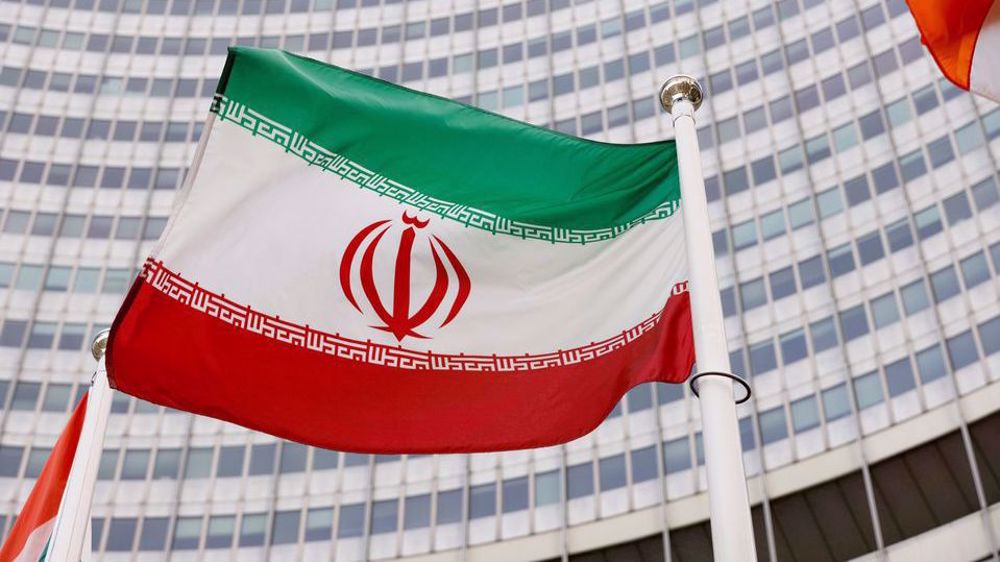
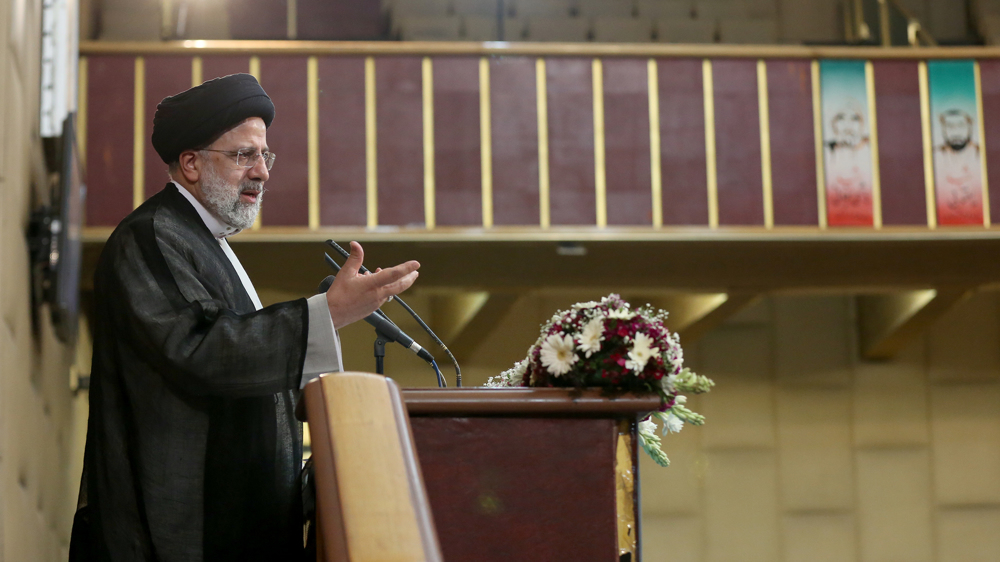
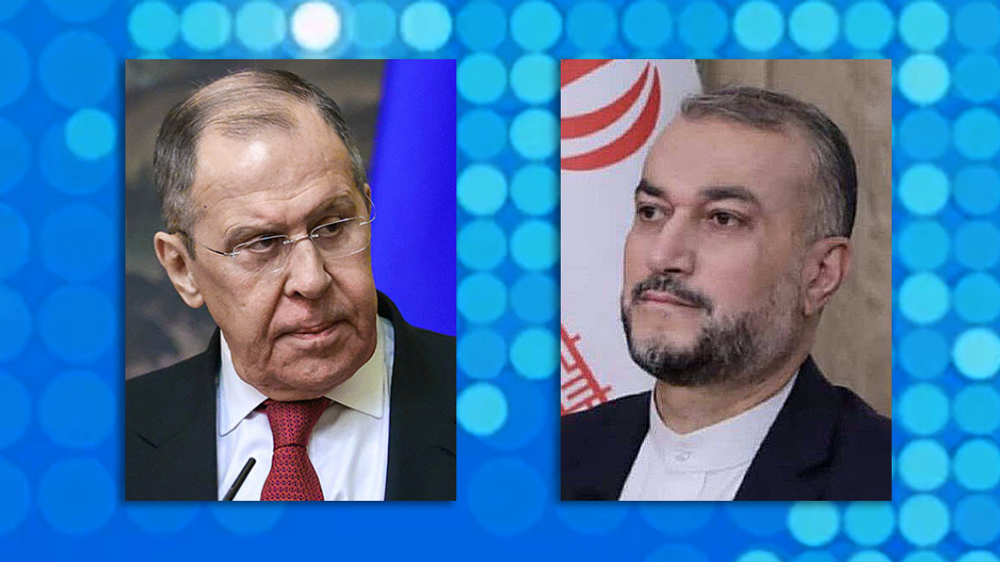
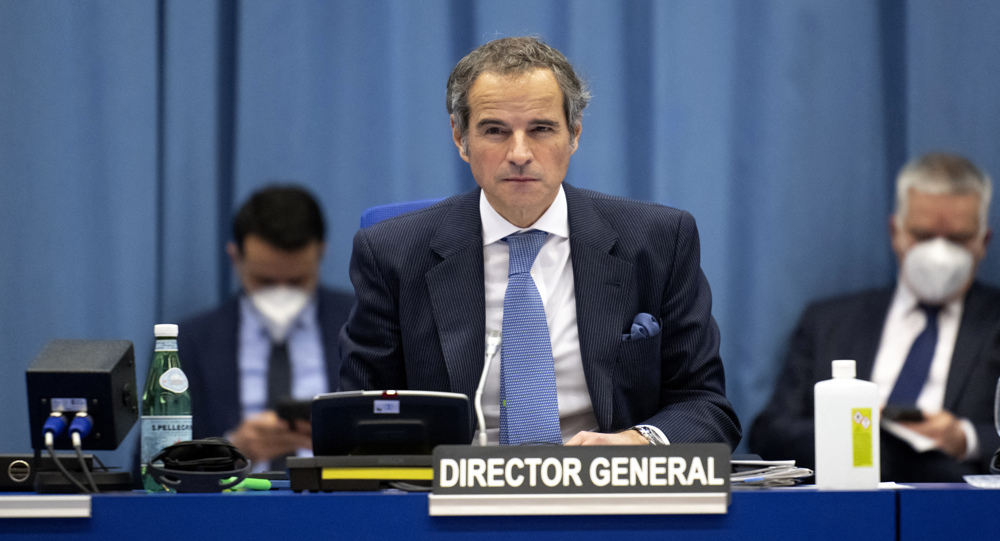
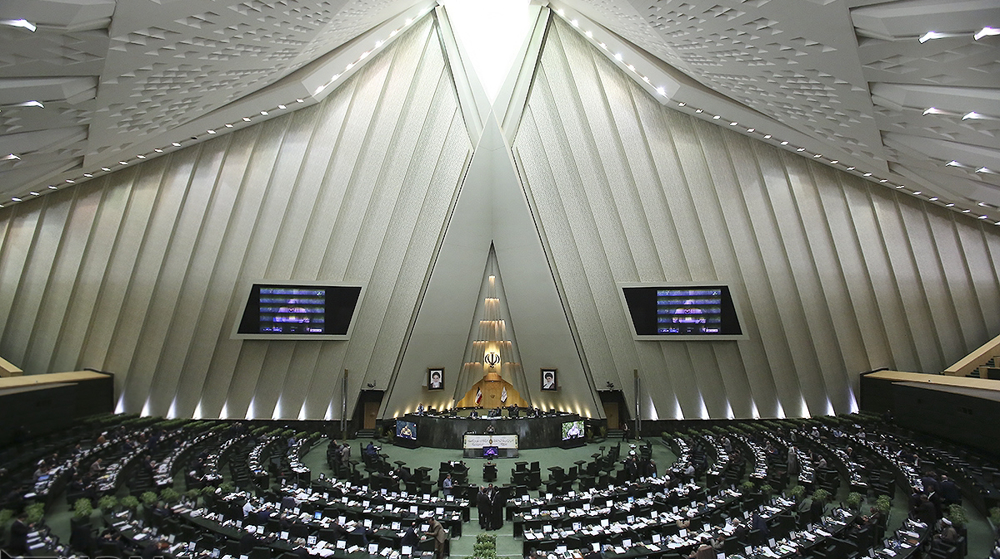
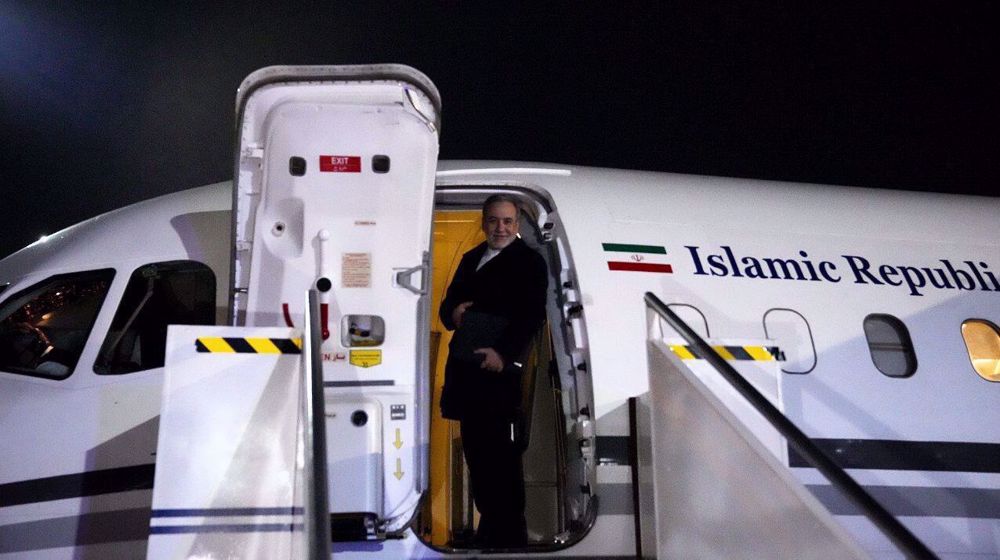
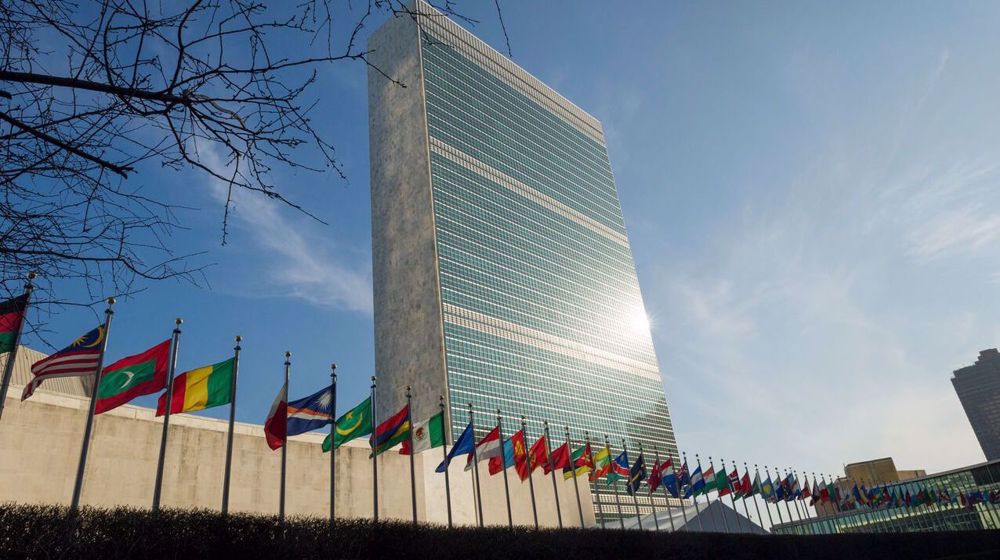
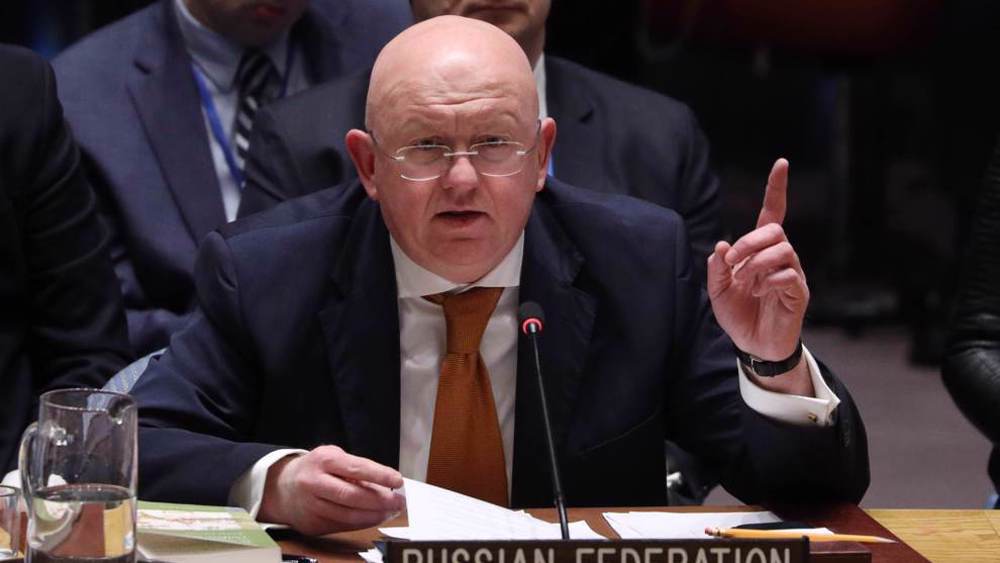



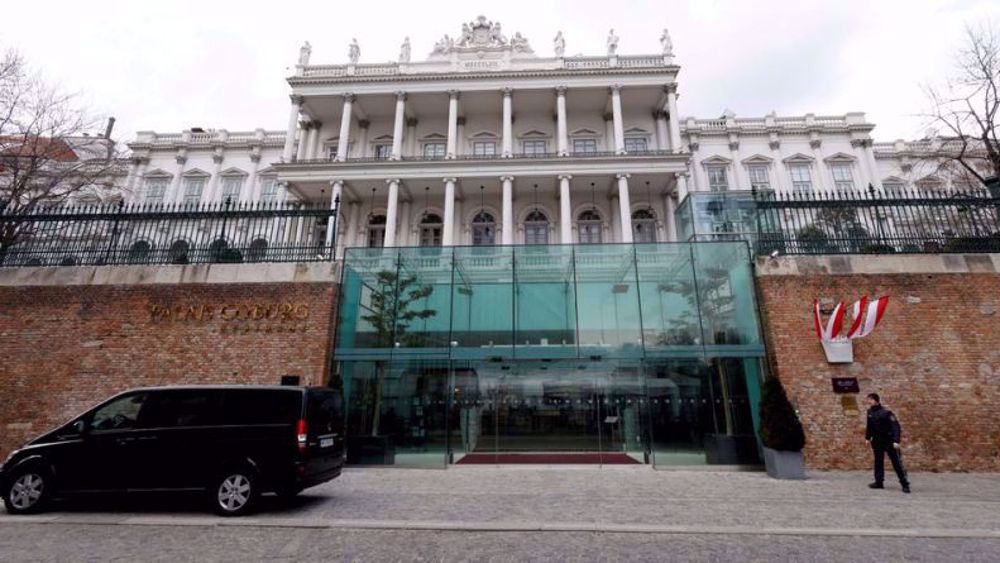
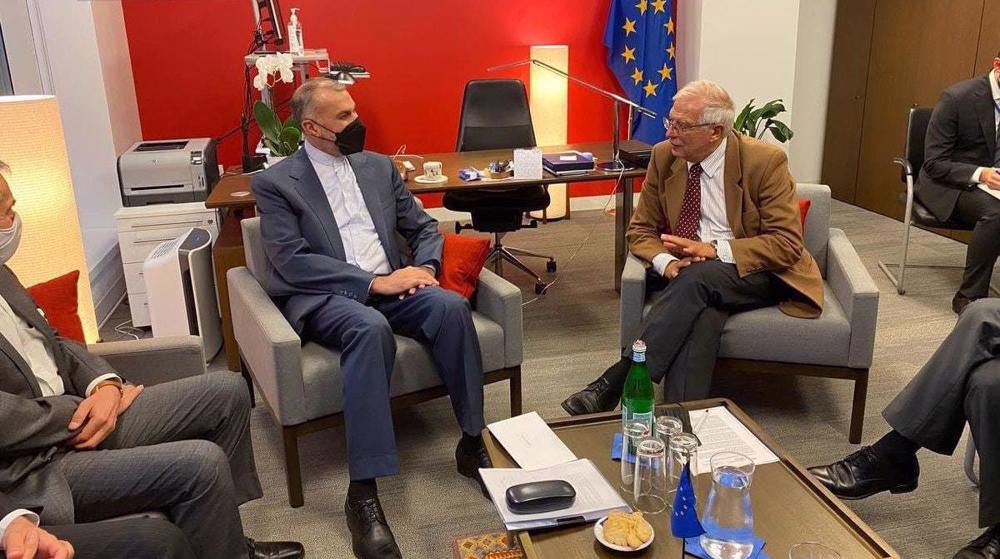
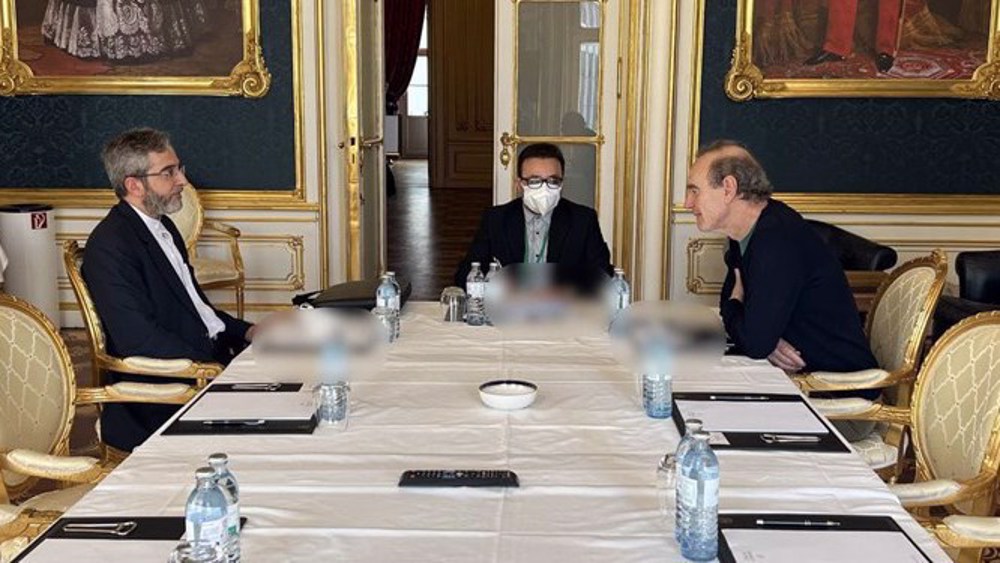
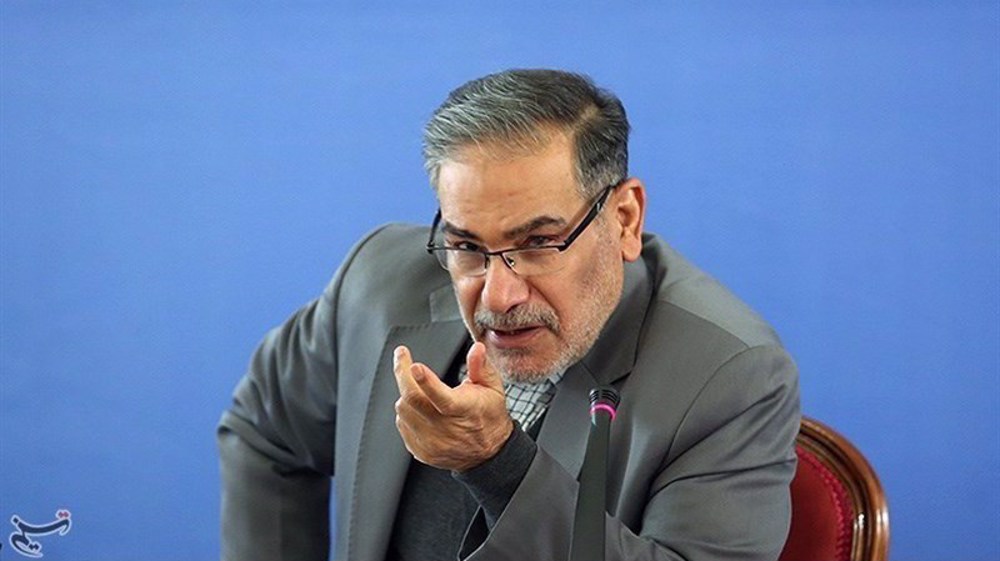
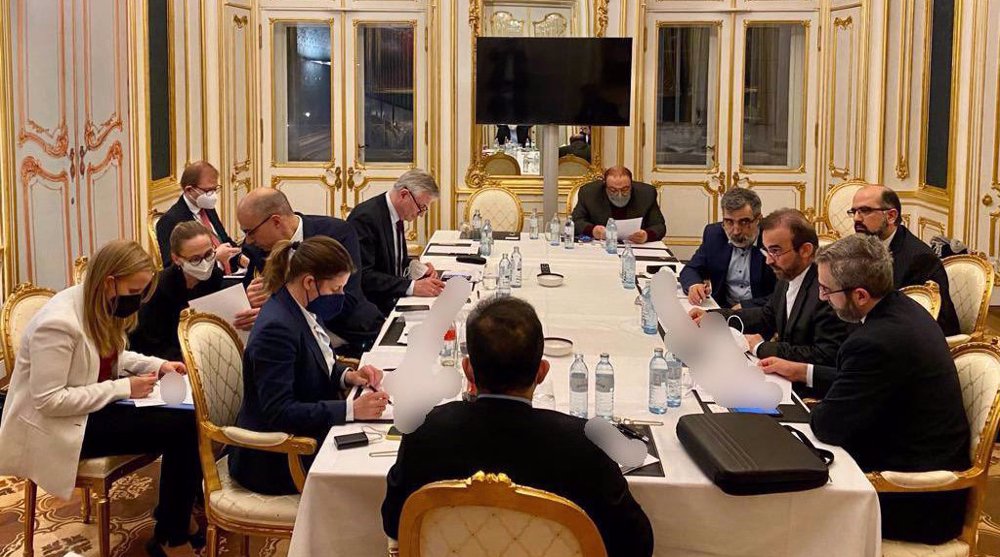

 This makes it easy to access the Press TV website
This makes it easy to access the Press TV website